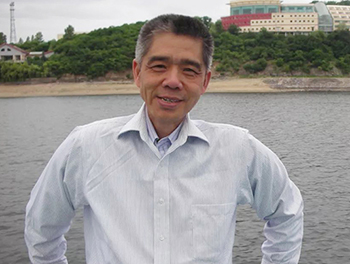
On 27 November, 2018, the 28th general meeting of The World Academy of Sciences (“TWAS”) was held at Trieste, Italy. On the 28 November, the organizer announced the election of 46 Fellows hailing from 20 countries, including 14 from mainland China. Peking University’s National School of Development Professor, Chief Scientist of Ruiyi Institute of Higher Studies Zeng Yi was amongst the new Fellows.

The TWAS, headquartered in the northern Italian city of Trieste, was established in 1983 as a non-governmental, non-political and non-profit international scientific organization. It awards scientists across disciplines who have been living and working in developing nations for at least ten years, and also supports and promotes science academies in developing countries. Currently it has over 1200 Fellows, of which 232 come from mainland China.
Prof. Zeng Yi is a celebrated demographer, born in Jiangxi province on 5 September 1952. In 1982, he attained his bachelor’s degree in Economic Geography at East China Normal University. In May 1986, he graduated Suma Cum Laude from Université libre de Bruxelles in his PhD in Demographics and in 1986-1987 conducted post-doctoral research at Princeton University. In 1987, he was awarded the Dorothy Thomas prize from the Population Association of America.
In August 1987, Zeng Yi returned to China and began his teaching and research posts at Peking University and in May 1989, was promoted to professor at Peking University. He previously served as Director of Peking University’s Institute for Population Research, Peking University National School of Development Professor and Director of Peking University Healthy Aging and Development Research Center.
Zheng Yi is currently Professor of post-retirement hiring at Peking University’s National School of Development and Chief Scientist at Ruiyi Institute of Higher Studies. Meanwhile, he is tenured full professor at the Duke University School of Medicine Center for the Study of Aging and Human Development as well as Professor at Duke University’s Institute of Population Research and Department of Sociology, and Director at Duke University’s Chinese Population and Socioeconomic Studies Research Center.
Prof. Zeng Yi’s research results are numerous and commendable. In China, he has been awarded numerous accolades including the second-class prize for outstanding achievement in science and technology advancement awarded by the State Sciences and Technology Commission of China; first-class prize for outstanding contribution in philosophy and social sciences awarded by the Ministry of Education; The first-class prize for outstanding achievement in science and technology advancement awarded by the State Education Commission; and the highest academic honor of Peking University "Prize for Outstanding Contributions in Sciences. In January 2009 he was awarded the “Chinese Population Prize (Science and Technology)”, jointly awarded by nine ministries and seven national non-governmental associations in China. Internationally, he was awarded the Harold D. Lasswell Prize in Policy Science awarded by the international journal Policy Sciences and Kluwer Academic Publishers and in 1998 was awarded Distinguished Research Scholar of the Max Planck Institute for Demographic Research (MPIDR) in Germany. In May 2010, Zeng Yi became the first mainland Chinese to become a foreign member of the Royal Netherlands Academy of Arts and Science.
Zeng Yi is a model example of bringing together theory with real world experience – his efforts have had a large influence on demographic policy in China, specifically on its recent ‘Two-Child Policy’. In 2015, Guang Ming Daily, following the opening of the ‘Two-Child Policy’, released the article “Behind the implementation of ‘two child’: which think-tank experts are calling?”, in which Zeng Yi was highlighted at top expert.
In addition, from 1998, Prof. Zeng Yi officially commenced the large scale ‘Survey on factors affecting Chinese elderly health’; and received financial assistance and support for his work from numerous organizations including the National Natural Science Foundation of China’s key project; Natural Science Foundation of China “Director’s Special Award”; America’s National Institute of Health; Peking University 211 project; the United Nations Fund for Population Activities; China Ministry of Education’s Social and Humanities Sciences key research bases’ major research project grant and the Hong Kong Research Grant Council.
This project, which has spanned over a decade has not only accumulated a large amount of data on health and lifestyle of the elderly, but also blood samples of the elderly, which will provide valuable samples for subsequent interdisciplinary research in social sciences and life sciences. Among them, the research with the Institute of Molecular Medicine has yielded fruitful results and has become a model for interdisciplinary research at Peking University.